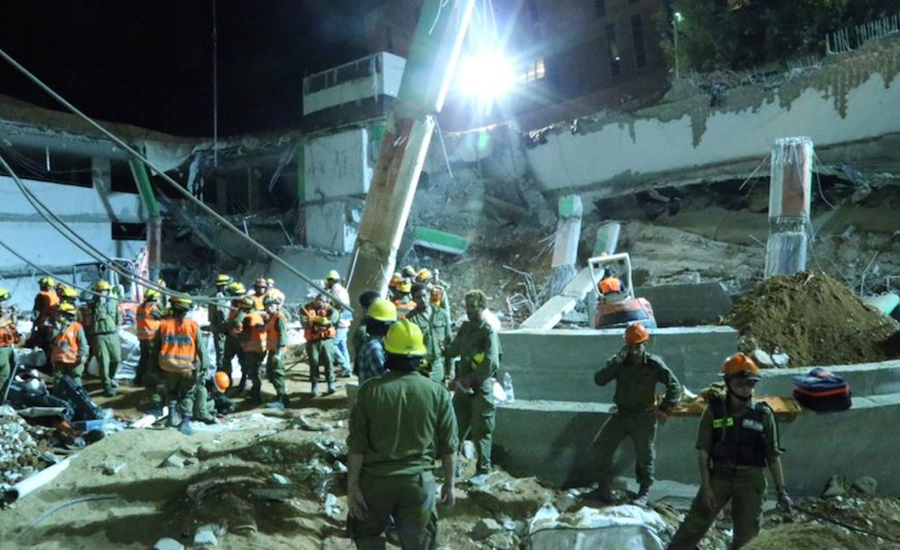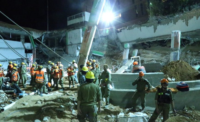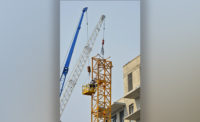Roof Overload Seen as Likely Cause in Fatal Israel Garage Collapse
Police won't confirm as probe continues in Sept. 5 accident that killed six workers.

Crews at site of fatal Sept. 5 Tel Aviv accident search for missing workers; a police probe of the garage collapse continues.
Photo by Flash 90, Jerusalem
Israeli police are continuing their investigation into the fatal collapse on Sept. 5 of an underground parking lot in a Tel Aviv commercial district just weeks before it was scheduled to open. The direct cause of the collapse now appears to be known although the blame is still unclear. Dozens of engineers have been consulted in connection with the probe, which is still under a court's gag order.
Police have refused to comment on the accident, in which six construction workers died and 23 were injured.
“It’s now clear that the decision to cover the roof of the parking lot with sand using heavy equipment the same day of the accident led to the collapse of the structure,” said a senior Israeli engineer familiar with the probe. He added the sheer weight “was above the permissible load for the structure.”
The sand was brought in as part of the plan to create a garden on the roof of the underground facility. What is unclear, according to the senior engineering source, is who approved the bringing in the sand.
The engineering firm that planned the facility, Tel Aviv-based Miller, Shenbal, Zahar and Associates, is one of the country’s top civil engineering firms. However, industry sources said it is unclear whether it approved the plan to bring in the sand, or the go-ahead was given by engineers working directly for Danya Cebus, the company building the $30-million garage. It is a unit of Africa Israel Investments, which is one of Israel’s largest construction firms.
The company won the contract for the four-story, 17,000-sq-meter project from the Tel Aviv municipal-owned company that administers and operates city parking facilities. Project firms also did not comment.
The investigation comes amid a growing focus on the lack of safety and enforcement in the country’s construction industry.
On October 26, another construction industry worker was killed at a building site in Haifa, bringing to 40 the number of workers killed at sites throughout Israel this year—nearly double the number reported during the same 10-month period last year.
The Israeli Institute for Occupational Safety and Hygiene noted in a recent report that the figure in Israel is more than double the average of countries that are members of the Organisation for Economic Co-operation and Development (OECD).




